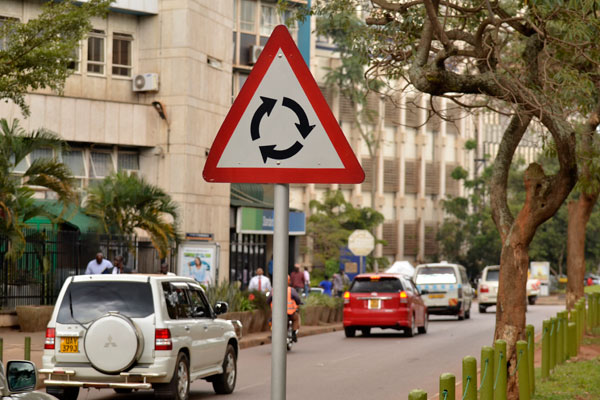Public holidays in Uganda are religious or national and may be fixed or dependant on the moon but they are all embrace as days to be celebrated and enjoyed. For some of them, stores, shops and public offices and facilities are closed while others, it’s purely celebration.
Uganda is generally religious and a God fearing country – clearly said aloud from its national slogan, ‘For God and my Country’. Many of these religious public holidays will be taken with a lot of passion and respect for the faith.
Ugandan school holidays are generally dependant on the national education calendar that takes into account; when the school terms will start/end. And therefore the children will have there holidays simultaneously- this may be at most, a week plus or minus for some private schools.
Sunday will generally be a day off for many. The banks and public offices will be closed – and some times even your local shop will be closed (I hope not!), especially if the owner has got to attend church. But generally the local shops and bars will be open.
The first public holiday of the year is 1st January – New Year’s day. The nation celebrates with the rest of the world.
26th January – Liberation Day. It’s a national holiday that marks the liberation of the country from the years of turmoil. We celebrate when the National Resistance Army (NRA) led by Yoweri Museveni who is the current President, took over government in 1986.
14th February – Valentine’s Day. This is purely a celebrative holiday. All the banks, public offices and business will be open. It’s a beauty to watch how Ugandans have taken on this day to express their love. Many will have some red some where if not entirely, dictating their dress code before the evenings turn into flowers, merry and dinners particularly in the urban areas.
And well as the true meaning of the day might still be vague to the majority, they will truly express their love for the special people in their lives.
8th March – International Womens’ Day. It’s a greatly recognised holiday in Uganda that has gradually built momentum over the years for the plight of women especially for the mothers and girl child. The banks, public offices, government institution and some private organisations and businesses will be closed but generally, most of the shops will be open.
1st April – April fool’s day. This might go unnoticed- depending on where you are. It’s another lovely day filled with jokes! (Don’t forget to fool your colleagues and friends). Entirely has no effect on the running of business- all amenities are open.
Depending on the religious calendar, Good Friday and Easter Monday will be celebrated sometimes in the month of March or April. The stores and public offices and banks will remain closed on both days. The fact that Easter falls on a Sunday; it will naturally be celebrated anyway.
1st May – International Labour Day. This is a national holiday and stores, shops, banks and public offices will remain closed.
3rd June – Martyrs Day; Is gazetted as a public holiday to celebrate the lives of 32 young men who under the orders of King Mwanga II of Buganda kingdom, were burned to death at Namugongo for their refusal to renounce Christianity in 1886. The men were from the Catholic and Angican faiths and are internationally recognised as Ugandan Martyrs.
Annually Christians from all walks of life come to the shrine in Namugongo to commemorate the lives of the Ugandan Martyrs. The stores, shops, banks and public offices will remain closed.
9th June – National Heroes Day. It is a public holiday in honour of all those who sacrificed themselves to better the lives of the Ugandan people. And the major goal of this day is to bring these heroes into the spotlight to be remembered and honoured. The stores, shops, banks and public offices will remain closed.
Eid al-Fitr (End of Ramadan); For the Muslim faith. The date is different from year to year but usually falls about August and will be dependant on the cycle of the moon. It is a public holiday and all facilities will remain closed apart from a few local shops.
9th October is Independence Day; Recognized as a national public holiday to commemorate when Uganda gained independence from Britain in 1962. The rest of it is Ugandan History. The stores, shops, banks and public offices will remain closed.
Eid al-Adha (Feast of the Sacrifice); For the Muslim faith. The date is different from year to year but usually falls about late November into December. It is a public holiday and the stores, shops, banks and public offices will remain closed.
1st December – World Aids Day: Nationally recognised particularly to revisit and consolidate Uganda’s efforts against HIV/AIDS and craft a way forward to continue with the fight. It’s a normal working day and all the banks, public offices and facilities, shops and private businesses will remain open.
24th December – Christmas Eve. It will feel like holiday already – the more reason its part of this list. The holiday mood is in the air. Most of the public offices are deserted with people doing final shopping and travelling to their up-country homes for the celebrations.
On one hand its a holiday but on the other hand its not since the banks will be open till 12 noon or 3pm depending and the shops will be open till late as they try to make that last minute Christmas sale.
25th December is Christmas Day. Ever wondered what happens else where! Come see the Ugandan version of Christmas celebration- its feasting and merry! All amenities will remain closed.
26th December is Boxing Day. It is a public holiday. The stores, shops, banks and public offices will remain closed.
31st December is New Year’s Eve. Is it a public holiday? No and Yes! No – because it’s not gazetted as one but also Yes – because the feeling of holiday will still roam about. Many public offices will still be deserted with many people yet to return from the Christmas celebrations. My advise would be – don’t plan for serious business then!
Business will generally be slow for sure and this will/ might go on into the early days of January as people start to return from their up-country homes. The banks and other shops and private businesses will be open though.
Please note; that there may be and will be days declared by government as public holidays as and when the government will deem it fit. Such public holidays may include; death of a Very Important Person like a former President, national election days, a national cause or loss say; a disaster – days will be taken off to mourn the dead.
Ugandan School holidays
What about Ugandan school holidays? I am glad someone asked!
These will generally have no effect on business and through the school holidays, it will be business as usual with the banks, stores, shops, public offices and facilities remaining open. But the schools will be closed.
The Primary, Secondary, Technical/Farm schools and Community Polytechnics school terms run through the year with term 1 starting round about the last week of January or early February.
With approximately three months at school, term 1 holidays will fall round about end of April/early May and these will usually be about 3 weeks long. The timing of these will usually fall in line with celebrating Easter.
Term 2 will start about mid May/ late May taking them through another approximately 3 months at school to early August.
Term 2 holidays will start round about early August to early September giving the children about 4 weeks of holiday.
Term 3 will then begin in early September through to late November for the start of the long Christmas holiday ( Usually late November/early December to late January).
The private and public universities and other tertiary institutions run on their respective individual time tables and calendars.
That’s about Public holidays in Uganda….go with the flow and enjoy them while there.
















